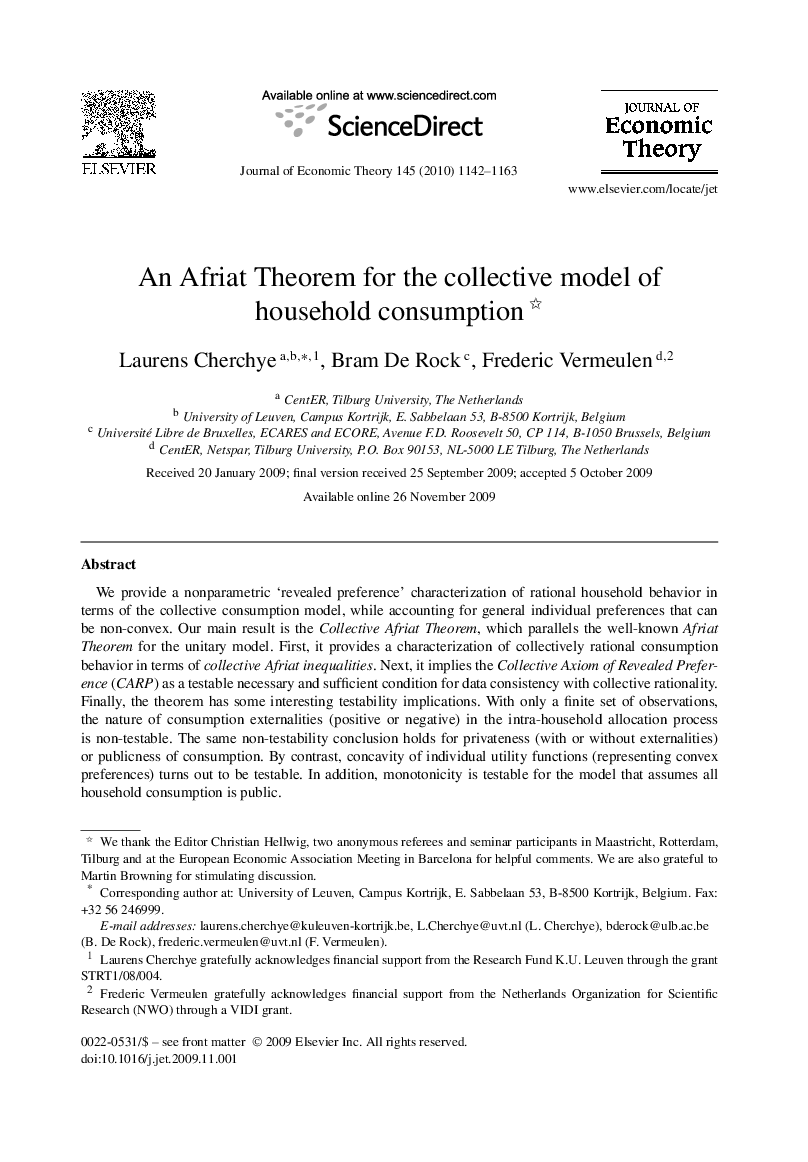| Article ID | Journal | Published Year | Pages | File Type |
|---|---|---|---|---|
| 957486 | Journal of Economic Theory | 2010 | 22 Pages |
We provide a nonparametric ‘revealed preference’ characterization of rational household behavior in terms of the collective consumption model, while accounting for general individual preferences that can be non-convex. Our main result is the Collective Afriat Theorem, which parallels the well-known Afriat Theorem for the unitary model. First, it provides a characterization of collectively rational consumption behavior in terms of collective Afriat inequalities. Next, it implies the Collective Axiom of Revealed Preference (CARP) as a testable necessary and sufficient condition for data consistency with collective rationality. Finally, the theorem has some interesting testability implications. With only a finite set of observations, the nature of consumption externalities (positive or negative) in the intra-household allocation process is non-testable. The same non-testability conclusion holds for privateness (with or without externalities) or publicness of consumption. By contrast, concavity of individual utility functions (representing convex preferences) turns out to be testable. In addition, monotonicity is testable for the model that assumes all household consumption is public.
